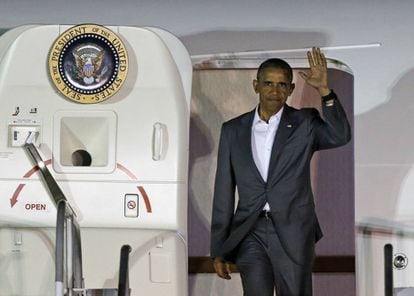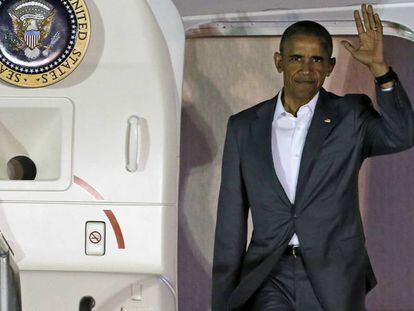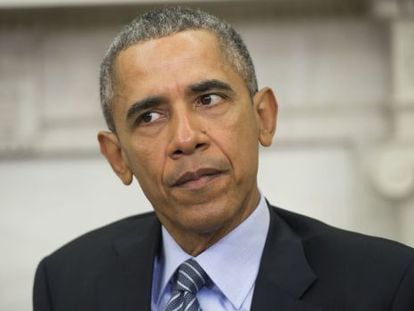Barack Obama in Spain
The US president’s visit does justice to the alliance between the two countries

Barack Obama is finally going to make a visit to Spain, and before his mandate comes to an end. He will do so following a tradition of US presidents, who have always made a stop in our country since the return of democracy. The complicated Spanish political calendar will mean that the American leader will land here on July 9, barely two weeks after the repeat general elections, after the inconclusive December polls. As such, Obama will be met with an acting administration, and most likely, a country that is pending new negotiations ahead of the formation of a government – something that Spanish political parties have been unable to agree on since last year.
In a moment of particular confusion, this is a timely reminder of the role that Spain plays in the world
But this will not reduce the importance of the visit. In a moment of particular confusion, such as the one that the national political scene is seeing right now, this is a timely reminder of the role that Spain plays in the world and of who our allies are.
It is true that this journey has been delayed too many times, given that Obama – who came to Spain in 1988, when he was 26 and backpacking – arrived in the White House eight years ago, and since then has visited 13 European countries, but never our own. And it is also true that Spain has never exactly been high up on the list of US foreign policy priorities, at least in terms of visits. Take, for example, the fact that the current secretary of state, John Kerry, has visited the United Kingdom and France at least 20 times, while having come to Spain just once.
Despite such a low public profile, during the Obama presidency, both countries have strengthened their bilateral relationship in a very significant way. In the fight against terrorism, the widespread cooperation between the intelligence services from each country is well documented. And on questions of security and defense, Spain has become a first-rate ally for Washington, allowing the deployment of its anti-missile shield on the Spanish bases of Rota and Morón, a system that is of crucial strategic importance for the US, and the rapid response force to intervene against terrorism in Africa.
Sign up to our newsletter
EL PAÍS English Edition has launched a weekly newsletter. Sign up today to receive a selection of our best stories in your inbox every Saturday morning. For full details about how to subscribe, click here.
In ideological terms, the Obama presidency – with its progressive stance on economic and social issues, together with its reticence to use military force – has served to deactivate the usual anti-American stereotypes among the left-wing, and the non-critical pro-US stance of the right. With its light and shade, the mandate of the first African American president of the most powerful democracy in the world has achieved that this is not a divisive factor between the political class and Spanish society, leaving behind the internal conflicts at the expense of the US that marked the Bush era.
Obama will arrive in Spain just 11 days before the Republican convention that will proclaim Donald Trump presidential candidate will open in Cleveland. The property magnate threatens to profoundly alter the relationship that Washington has with its allies, which include Spain. It’s a normal relationship, and one that must be preserved from both sides of the Atlantic.
English version by Simon Hunter.












































